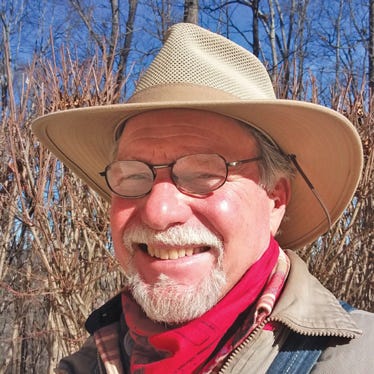
Back in the early 70’s, the U.S. army was not very popular with young American men. ROTC at most public supported universities was losing its mandatory status. ROTC instructors, mostly charismatic captains and majors, became recruiters and the pay for advanced cadets went from $30 to $100 per month in 1972. I signed on as it sounded too good to be true.
One of the sells pitches we received as ROTC cadets was the fact that as “normal” people we would spend 40 years working for wages and then retire at a couple of hundred dollars social security per month. Twenty years in ROTC and the military would have us drawing 50% of our exiting salary plus regular increases at a young age (about 40) with full medical and PX benefits. They called it the 20-year plan.
I now have what I call the two- to five-year plan for ranching.
In September, we are having a ranch school at 499 Ranch with visits to multiple farms and sites. We are bringing in the cream of North American animal agriculture including Gordon Hazard, Allen Williams, Doug Peterson, Alan Newport, Harry Cope, David Pickle, John Hambrick, Raymond Cooper, Dennis Fennewald, and several other successful rancher/ grazers for the most intense two-day school of 2016. About 60% of the time and energy will be outside, on the ground and grass of multiple farm locations and sites.
One of our unfair advantages is our location. Situated in middle Tennessee just 12 miles south of I-40, our multiple agenda locations are only minutes apart and our roads are not washboards. We can hit more ground and land changes faster than anywhere I know.
Our school is limited to 60 participants for good reason; small group size where everyone hears, sees, and participates. We haven’t done a similar event in six years but many of the folks that were here in 2010 are returning, along with lots of non-Tennesseans, 18 of which signed up in the first nine days.
We promise to thoroughly go thru the natural principles and their application to where people can totally overhaul an operation in two to five years. I like it a lot better than the military’s 20-year plan or Uncle Sam’s 40- to 45-year deal.
The list of ranchers presently registered includes sizable stocker, cow-calf, and grass finishing operations from New York, Kentucky, Texas, Arkansas, Iowa, Missouri, Oklahoma, Carolina, and Tennessee. Small, medium, and large operations might just fit the bill and everyone goes back to their HQ in better shape than they left.
Email Brenda at [email protected] or call me at (931) 761-5001 if you have interest.
It is all about fun and money but seriously a lot of people are going forward the next few years. Our desire is to help put the trip into a near overdrive mode while helping remove a bunch of potholes.
About the Author(s)
You May Also Like






